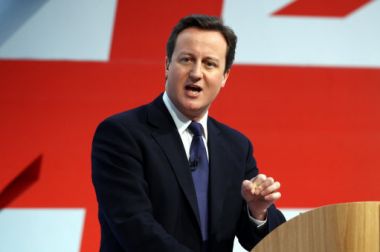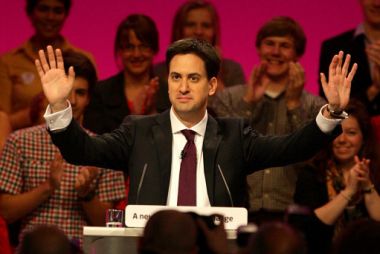Why do we want politicians who know 'the right thing to do'?

With the party conference season now in full swing, it won't be long before politicians start telling us that some item of policy is "the right thing to do". It's become a mantra. Three days ago, in his post-referendum speech in Downing Street, the Prime Minister used the phrase five times in six minutes. In recent months he has used it in relation to cutting taxes, culling badgers, opposing the new head of the EU Commission, holding a yes/no referendum in Scotland, allowing gay men and lesbians to marry, and much else. All of these were "the right thing to do". When the culture secretary Maria Miller resigned in disgrace David Cameron said she had "done the right thing". It was almost as if she deserved applause for throwing in the towel when she'd been caught fiddling her expenses.
Let's give the Prime Minister the benefit of the doubt, and assume that "the right thing" is not just a vocal tic but a deliberate choice of words. If so, it's a clever turn of phrase. Sheer repetition has an almost hypnotic effect. After all, we all want to do the right thing. We like a leader who can look confident whilst telling us that he's doing the right thing. And of course it suggests that to do anything else (such as the thing your political opponents are proposing) would be the wrong thing to do.
The trouble is that by itself, the phrase "the right thing to do" is totally meaningless. It's an ethical statement without any basis. It begs the question "why is that the right thing to do?" Unless you are claiming that moral authority stems from you personally, and that your saying something is right actually makes it so, (which would be arrogance of an extraordinary degree,) then you need to provide some kind of ethical reasoning that says why the course of action you are proposing is better than the one someone else has suggested. In other words, the only honest statement from a politician, or a Christian leader or for that matter, is "I believe this is the right thing to do, because..."

It's the "because" that matters, and that creates the huge vacuum in our current political life. We desperately need to know what values and beliefs lie behind the decisions our leaders make and the policies they recommend. In order to decide whether to slash benefits or cut taxes we need to discuss whether we feel people are best motivated by hunger or ambition. We need to think about the changing significance of statehood if we are to think straight about immigration policy or our membership of the EU. To decide our stance on military action abroad, we need to debate whether conflict is best solved by warfare or by peace-making. These are questions of theology and ethics, and they may feel a bit abstract in the hurly-burly of a TV interview or a party conference speech. But without these fundamental values in place, decisions about what it's right or wrong to do are completely arbitrary.
At best, the party conference season allows political thinkers to meet and reflect on their values. If you've been to a party conference you'll know that the best work doesn't happen in the televised and stage-managed debates in the conference hall. The really interesting stuff goes on in the conference fringe. From early morning until late at night, interest groups run seminars to discuss details of policy in areas where they have real expertise. These meetings take place in hotel rooms, church halls and bars in and around the conference venue. If you're interested in animal welfare or asylum seekers, housing or drugs policy, the chances are you will be able to sit down with the minister responsible (or the shadow minister who wants to be responsible) and have a sensible discussion about how lived experience can be combined with religious or secular convictions to create effective policy. The quality of the conversation is often high, and there's almost always a free bar.
If the Scottish referendum made anything clear, it's that there is widespread disillusionment with the conduct of Westminster politics. Many of us seem to feel that politicians will do or say anything to gain and retain power. And the way they do that is largely to do with presentation rather than philosophy. Over the months between now and the General Election we are likely to see an unholy scramble as all the major parties vie to present themselves as the toughest. They way to look toughest, they all seem to believe, is to make life as difficult as possible for the most vulnerable people in society, such as those who depend on others for financial support, and those who have come to the UK seeking refuge. It's a process of "othering." First you identify a group of people who are not like you and me. Then you persuade the electorate that these people are to be feared. Then you reassure voters that you have a plan to control or destroy them. And of course that would be "the right thing to do."
To reverse the popular cynicism about politics we don't need louder, more confident politicians but quieter, more reflective ones. We need politicians who are closer to the people they serve, and who create opportunities to listen as well speak. We need to reassure our politicians that humility is not a sign of weakness. It's worth noting that Christians don't always model this kind of humble, values-driven decision-making. It's no good just to bang on about what we believe, as if we know what's right, and saying it loud enough and often enough will convince people. We also need to be open to discussion about why we believe what we believe. The preconditions for that are a willingness to listen to others, and an openness to entertain the possibility that I might be wrong.











